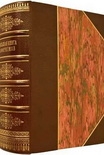The Fourth Child by Jessica Winter (read with me .txt) 📗

- Author: Jessica Winter
Book online «The Fourth Child by Jessica Winter (read with me .txt) 📗». Author Jessica Winter
Paula was familiar and unknowable at the same time. She had taught herself a wordless language of looks and gestures, thesecret history of how bodies fit together, an animal knowledge of scent. She knew what other people wanted and they didn’teven have to tell her. There was a thrill and a danger in what she knew that Lauren didn’t.
It is not so different over here, Paula seemed to say. It may be strange now, but soon you will know what I know.
Bethune’s teachers appeared ready to accept Paula as a fellow member of their adult world, as they already did with some of the senior girls, like Abby Yoon and Claire Finnerty. Abby was probably going to be valedictorian and probably going to get into Harvard, and now she wanted to direct the fall play and she would probably get to do that, too. She worked hard and happily at things that apparently came very easily to her—debate team, first-chair violin—and her teachers regarded her as a minor celebrity, their gazes blushing and parental. Everyone thought that Claire—class treasurer, writer of award-winning poems, Seven Sisters–bound—was a shoo-in for homecomingqueen, but then she wasn’t even voted onto the court, and it was a minor scandal. It showed that a lot of people at Bethunedidn’t like her, maybe because she used words like ersatz and perspicacious in regular conversation and looked exactly like Jessica Lange, but the snub also made her seem less perfect and thereforemore vulnerable, and that made her even more likable among people who liked her already. Mrs. Bristol, the hardest A in theEnglish department, brought up Claire’s exclusion from homecoming court in a class discussion on the theme of jealousy inHenry James’s The Spoils of Poynton—Mrs. Bristol didn’t mention anyone by name, but everyone knew what she was talking about.
It was the English teachers who loved Abby and Claire best of all. The English department was its own little fiefdom: no corerequirements, no quizzes, no non-negotiable due dates, freshmen and seniors mingling in the same classes. All the teachershad tortoiseshell glasses and season tickets to the Buffalo Philharmonic, half of them with subscriptions to The New Yorker and half to The New York Review of Books so they could share around the table in the English department office, which was really just a bunch of carrels arranged in a semicircle. The men in tweeds, the women in floral blouses and peasant skirts. The English teachers didn’t call on Abby or Claire or Paula so much as they chatted with them in the midst of class while the other students watched. This was especially true of Mr. Smith, the new guy. Midtwenties, youngest teacher in the department by a decade or more. Round hazel eyes, silky dark hair that curled just over the back of his collar. Sometimes he wore a sport coat, like his department elders, but mostly tucked flannel shirts, jeans, Converse sneakers. It was like he had grown out of being a student but not quite grown into being a teacher. Mr. Smith felt low-stakes, too. Just out of teachers’ college—there was no way he knew what he was doing. He could spend half a class period dissecting a half-dozen lines of one poem, just going back and forth among Abby and Claire and Paula, not even trying to open the discussion out to the whole class. One day the four of them had some in-joke going about “Lines Written a Few Miles above Tintern Abbey,” on the part about the cliffs “that on a wild secluded scene impress / Thoughts of more deep seclusion.” Without raising her hand, Lauren asked if Mr. Smith ever used to live in Tintern Abbey. The four of them laughed, but Lauren didn’t understand why the question was funny.
“How come you almost never call on Lauren in class?” Paula asked Mr. Smith. The top of her voice sounded like sympathy forLauren, but the bottom of it was making an inside joke.
Mr. Smith winked at Paula. He said, “Eh, she knows I know how clever she is.”
It was Paula who told her that Mr. Smith lived alone in a one-story brick house in the “more modest” subdivision next to theBethune campus. Behind his back, Paula called him “the emancipated minor” and, occasionally, “the man-child,” even if shedid laugh at all his jokes.
Mr. Treadwell, still the easiest A in the English department, was coming close to retirement, and he was handing Drama Clubover to Mr. Smith. Mr. Treadwell liked Noël Coward and Oscar Wilde—he did productions full of arched eyebrows and curlicuesentences. Characters holding unlit cigarettes in long silver holders from the Mélange thrift shop on Elmwood Avenue. Mr.Smith wanted to do the midcentury American tragedies: Arthur Miller, Eugene O’Neill, Tennessee Williams. Plays with yellingand boozing and monologues. And cigarettes, still, presumably. For the 1991 fall play, he chose Miller’s All My Sons.
“Now there’s a play that ends with





Comments (0)